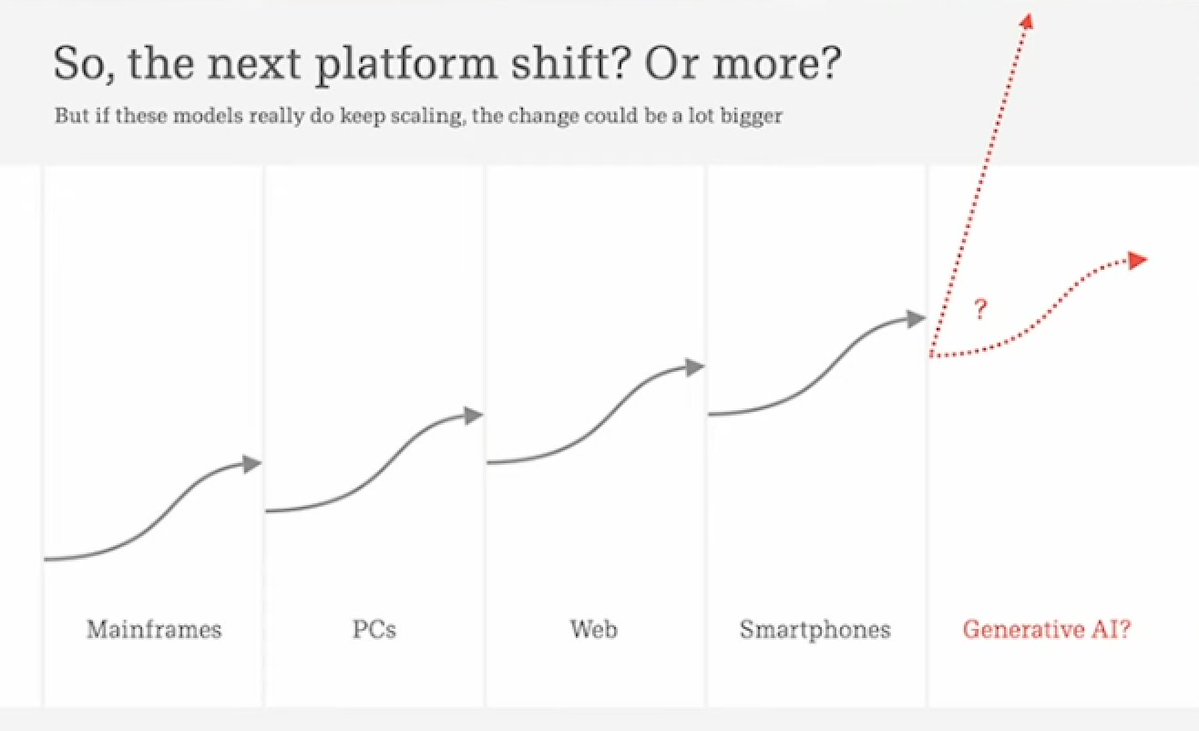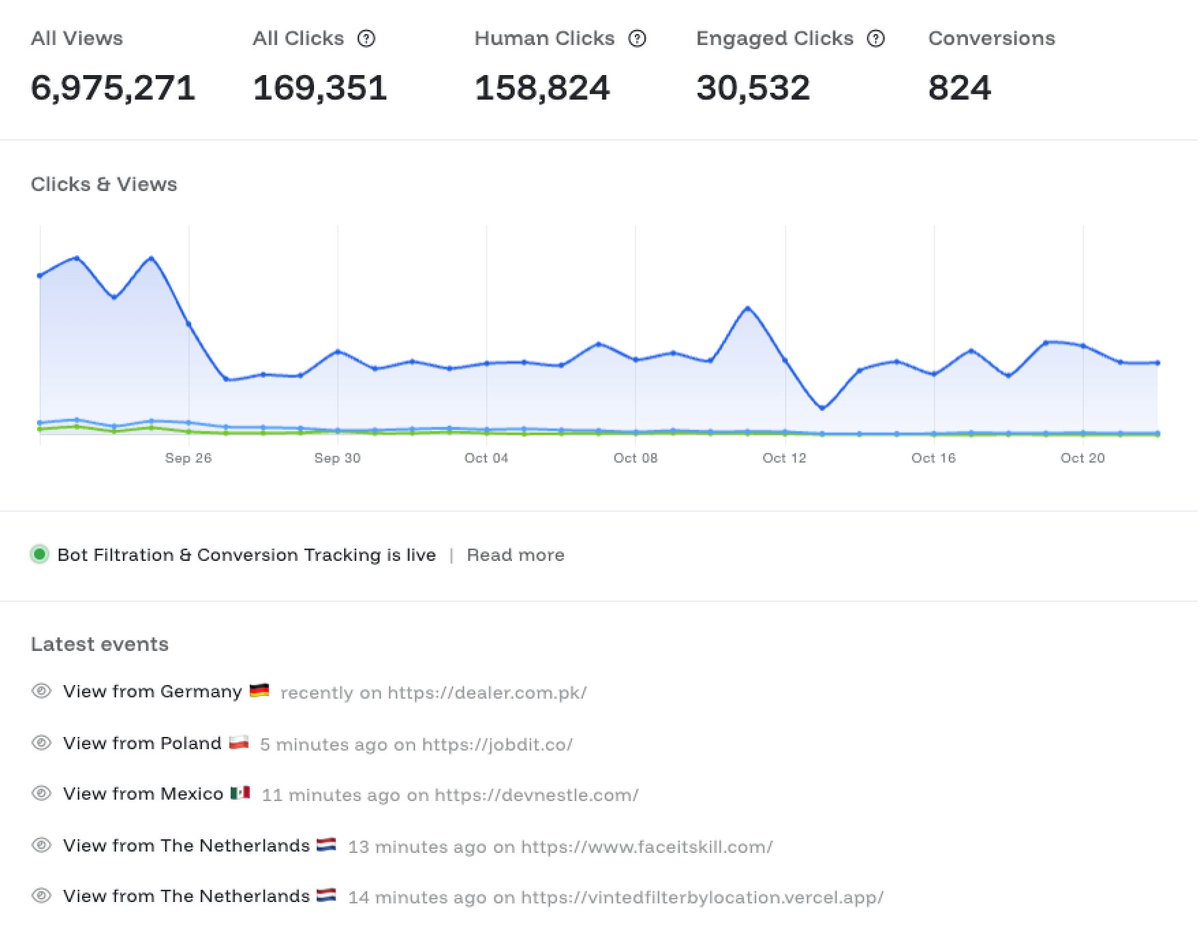I've tried all (46 😵💫) AI Coding Agents & IDEs
[Factory, Cursor, Heyboss, Windsurf, Emergent, Wrapifai, Copilot, Lovable, Bolt, v0, Replit, MarsX, Canva, Devin, Github Spark, IDX, Stitch & more]
The most complete list ever made (with demos & notes):
[Factory, Cursor, Heyboss, Windsurf, Emergent, Wrapifai, Copilot, Lovable, Bolt, v0, Replit, MarsX, Canva, Devin, Github Spark, IDX, Stitch & more]
The most complete list ever made (with demos & notes):
1. @FactoryAI
An advanced AI coding tool: generates complex apps, docs, works well with large existing projects, has access to web search, MCPs, can run code on my local machine + UX is 🤌 . best for coders.
I'm building "Inbox agent" using this tool, gonna report back soon
An advanced AI coding tool: generates complex apps, docs, works well with large existing projects, has access to web search, MCPs, can run code on my local machine + UX is 🤌 . best for coders.
I'm building "Inbox agent" using this tool, gonna report back soon
2. @heybossAI
I'd say the most creative AI Coding tool on the market (.
Can build production grade apps, with backend and database.
I'm building my inbox agent here too, so far, I really love the design output.
Works great for non-coders.
I'd say the most creative AI Coding tool on the market (.
Can build production grade apps, with backend and database.
I'm building my inbox agent here too, so far, I really love the design output.
Works great for non-coders.
3. @EmergentLabsHQ
Agentic Vibe coding tool. Handle entire apps with frontend & backend.
Works pretty fast and feels like a CTO or a tech cofounder.
The multi agent thing(coding agent, testing agent...) are cool too. I think it might turn into smth big.
Agentic Vibe coding tool. Handle entire apps with frontend & backend.
Works pretty fast and feels like a CTO or a tech cofounder.
The multi agent thing(coding agent, testing agent...) are cool too. I think it might turn into smth big.
4. Wrapifai.com
- best for form based apps(calculators, ai generators, etc)
- I use it to build mini tools for SEO or lead magnets
- 100% nocode. Super easy to use
I built this little app today listingbott.com/domain-authori… with 1 prompt and 1min.
- best for form based apps(calculators, ai generators, etc)
- I use it to build mini tools for SEO or lead magnets
- 100% nocode. Super easy to use
I built this little app today listingbott.com/domain-authori… with 1 prompt and 1min.
5. @create_xyz
- it can clone a product when you drop the link to it
- has connections to things like the movie db, hackernews and more
- auth with one prompt
Good if you wanna create functioning products with just a few prompts.
- it can clone a product when you drop the link to it
- has connections to things like the movie db, hackernews and more
- auth with one prompt
Good if you wanna create functioning products with just a few prompts.
6.
- perhaps the best for generating mobile apps from your phone
- also it's mobile-first iteself, basically "generate mobile app from your mobile"
- produces React Native apps (not just web wrappers)
- uses Claude 3.7 Sonnet
a0.dev
- perhaps the best for generating mobile apps from your phone
- also it's mobile-first iteself, basically "generate mobile app from your mobile"
- produces React Native apps (not just web wrappers)
- uses Claude 3.7 Sonnet
a0.dev
7. Cursor.com
- the best
- works best for coders and not such a good fit for nocoders
- can assist, autocomplete, refactor and even build entire modules/projects
Here its been asked to migrate from Tailwind v3 to v4
x.com/ericzakariasso…
- the best
- works best for coders and not such a good fit for nocoders
- can assist, autocomplete, refactor and even build entire modules/projects
Here its been asked to migrate from Tailwind v3 to v4
x.com/ericzakariasso…
8. @boltdotnew
- started as a side project of stackblitz and went huge raising $105M
- works for everyone(coders, nocoders, marketers...)
- has out of the box integration with supabase for data, auth..
I built several lead magnets using bolt
- started as a side project of stackblitz and went huge raising $105M
- works for everyone(coders, nocoders, marketers...)
- has out of the box integration with supabase for data, auth..
I built several lead magnets using bolt
https://x.com/johnrushx/status/1886610720881827976
9. @lovable_dev
- fastest-growing EU based startup today ($10M ARR)
- native supabase integration
- the best AI+NoCode mix on the market (the wysiwyg part)
- takes in screenshots as an input and can produce full web apps
I use it instead of Figma 😃
- fastest-growing EU based startup today ($10M ARR)
- native supabase integration
- the best AI+NoCode mix on the market (the wysiwyg part)
- takes in screenshots as an input and can produce full web apps
I use it instead of Figma 😃
10. @windsurf_ai (works well for advanced apps. my top 3)
- acts as a true agent
- can use the web search
- has a memory.
- best for lazy coders
- acts as a true agent
- can use the web search
- has a memory.
- best for lazy coders
11. Stitch from Google
- best for prototyping
- can be used by founders, designers, nocoders
- much faster than all the others
- best for prototyping
- can be used by founders, designers, nocoders
- much faster than all the others
12. Grok Studio from X AI
My favorite way of playing with code. I think people could use it to learn coding (I strongly suggest all vibe coders to learn coding)
My favorite way of playing with code. I think people could use it to learn coding (I strongly suggest all vibe coders to learn coding)
13. Canva Code
Perfect for lead magnets for founders, nocoders and marketers.
Perfect for lead magnets for founders, nocoders and marketers.
14. @augmentcode
- works in vs code and jetbrains
- built for coders
- can execute code, run terminal, find issues and analyze the code
Find performance optimization ideas in prod:
- works in vs code and jetbrains
- built for coders
- can execute code, run terminal, find issues and analyze the code
Find performance optimization ideas in prod:
15. @buildwithmocha
- for non coders
- builds full stack apps from prompts
- 100% complete(auth, db, hosting, emails...)
- perfect for non tech people, e.g. for your grandma
- for non coders
- builds full stack apps from prompts
- 100% complete(auth, db, hosting, emails...)
- perfect for non tech people, e.g. for your grandma
16. @rork_app
text to app AI agent
- builds mobile apps
- publishing directly on TestFlight
- perfect for building mobile apps for noncoders
text to app AI agent
- builds mobile apps
- publishing directly on TestFlight
- perfect for building mobile apps for noncoders
17. Clark
- ai agent to build internal enterprise apps
- can build an app from jira tickets
- a mix of prompting, figma like editing and coding
- ai agent to build internal enterprise apps
- can build an app from jira tickets
- a mix of prompting, figma like editing and coding
18. GitHub Copilot ( the OG of this game, started back in 2020 )
- can generate code
- handles large codebases
- can merge PRs, fix bugs, search code
- supports agent mode now and also it's open sourced
- can generate code
- handles large codebases
- can merge PRs, fix bugs, search code
- supports agent mode now and also it's open sourced
19. @Replit AI
- most advanced AI Agent for coding imho
- has two modes: Agent or Assistant
- true full stack app generator. Has its own server, db, hosting...
Here is the real app I built using it
seobotai.com/broken-link-ch…
- most advanced AI Agent for coding imho
- has two modes: Agent or Assistant
- true full stack app generator. Has its own server, db, hosting...
Here is the real app I built using it
seobotai.com/broken-link-ch…
20. v0 from Vercel
- best for making well-designed web pages or UIs
- doesn't work well for fullstack apps
- can use figma as a starting point
- lets you edit elements one by one
- best for making well-designed web pages or UIs
- doesn't work well for fullstack apps
- can use figma as a starting point
- lets you edit elements one by one
21. MarsX (my own product)
- a mix of AI, NoCode and High Code
- I built
@seobotai, @listingbott and @indexrusher using marsx
- it takes the whole coding world to the next level since it isn't a website builder, but "SaaS builder"
- a mix of AI, NoCode and High Code
- I built
@seobotai, @listingbott and @indexrusher using marsx
- it takes the whole coding world to the next level since it isn't a website builder, but "SaaS builder"
22. Devin
- not expensive anymore
- targets the corporate world
- acts as a junior dev in a dev team
- sends pull requests, works alongside you or your team. Doesnt work as well for me yet, idk why, feels like it works well for good repos. Mine is a mess
- not expensive anymore
- targets the corporate world
- acts as a junior dev in a dev team
- sends pull requests, works alongside you or your team. Doesnt work as well for me yet, idk why, feels like it works well for good repos. Mine is a mess
23. Webdraw
- best for people with zero coding experience
- totally genius UX
- free
- turns sketches into web apps
- best for people with zero coding experience
- totally genius UX
- free
- turns sketches into web apps
24. Tempo Labs
- Generates full-stack apps using a text or image prompt
- It starts by making an architecture and diagrams
- I think they have the best AI Coding UX, wow
- Generates full-stack apps using a text or image prompt
- It starts by making an architecture and diagrams
- I think they have the best AI Coding UX, wow
25. Trae
- goes all the way from 0 to 1 via prompting
- free
- from Bytedance
- can do fullstack web apps
- for coders
- goes all the way from 0 to 1 via prompting
- free
- from Bytedance
- can do fullstack web apps
- for coders
26. Cline
- VC code plugin
- works for large codebases
- supports any LLM
- runtime awareness
- VC code plugin
- works for large codebases
- supports any LLM
- runtime awareness
27. Databutton
- from my friends from Norway
- backed by VCs who backed one of my startups
- has very unique approach, different from most of the players
- works great for true nocoders
- from my friends from Norway
- backed by VCs who backed one of my startups
- has very unique approach, different from most of the players
- works great for true nocoders
28. Continue dot Dev.
- an open source alternative to Cursor
- great for those who wanna build their own AI IDE (like maker from Pear AI who forked it)

- an open source alternative to Cursor
- great for those who wanna build their own AI IDE (like maker from Pear AI who forked it)

29. Base44
- for noncoders
- all in one
- creates dashboard-like apps pretty well
- for noncoders
- all in one
- creates dashboard-like apps pretty well
30. Qodo
- for coders
- can write tests, refactor and generate code
- supports all llms(including deepseek)
- for coders
- can write tests, refactor and generate code
- supports all llms(including deepseek)
31. Caffeine AI
- new player
- too early to say anything. for now just putting them into the list to come back to them later when they launch
- new player
- too early to say anything. for now just putting them into the list to come back to them later when they launch
https://x.com/in_node65718/status/1882133878074397113/video/1
32. Aider
- can genereate most of the things out of prompts
- has cool terminal UI
- acts as a pair programmer
- works locally
- can genereate most of the things out of prompts
- has cool terminal UI
- acts as a pair programmer
- works locally
33. Pear AI
- entered into YC
- had a huge drama around forking a github repo
- had a mentor call with them, two very talented guys taking an alternative path on competing with cursor
- entered into YC
- had a huge drama around forking a github repo
- had a mentor call with them, two very talented guys taking an alternative path on competing with cursor
34. Github Spark
- works well for small or demo apps
- still behind the "waitlist" for the technical preview
- works well for small or demo apps
- still behind the "waitlist" for the technical preview
35. IDX
- free alternative to cursor
- can build mobile apps
- uses gemini
- free alternative to cursor
- can build mobile apps
- uses gemini
36. Tabnine
- mostly works as an advanced AI Autocomplete
- slowly getting into AI code gen
- mostly works as an advanced AI Autocomplete
- slowly getting into AI code gen
37. Amazon CodeWhisperer
- can generate unit tests
- help with coding
- can generate unit tests
- help with coding
38. Jetbrains
- I'd expect them to be leading this whole AI Cod Gen thing. Back in the day their autocomplete and resharper thing were just so cool. But somehow, they just wasted it all. I hope they catch up.
- I'd expect them to be leading this whole AI Cod Gen thing. Back in the day their autocomplete and resharper thing were just so cool. But somehow, they just wasted it all. I hope they catch up.
39. ChatGPT code canvas
- great for nocoders learning tocode
Building windows 95 demo:
- great for nocoders learning tocode
Building windows 95 demo:
40. Haystack - An IDE built on top of a canvas
- really cool and creative idea for UX of a code refactoring with AI
- also does code reviewing
- really cool and creative idea for UX of a code refactoring with AI
- also does code reviewing
41. Claude 3.7 or 4 Sonnet.
- the best coding LLM
- the best coding LLM
42. Claude Code
can search code, run tests, and push to GitHub.
Claude Code is a CLI tool that lets you delegate engineering tasks to Claude with full access to your codebase, tests, and GitHub - all from your terminal.
can search code, run tests, and push to GitHub.
Claude Code is a CLI tool that lets you delegate engineering tasks to Claude with full access to your codebase, tests, and GitHub - all from your terminal.
43. OpenAI Codex
- for coders
- works for existing repos
- seems like it'll compete with devin
- for coders
- works for existing repos
- seems like it'll compete with devin
44. Jules from Google.
- for coders
- can be used a bug fixer, or for simple tasks
- can review code
- for coders
- can be used a bug fixer, or for simple tasks
- can review code
45. @AmpCode from Sourcegraph
- agentic (parallel) coding tool for coders
- from a company that knows what the code is really well
- for coders(IDE plugin)
- agentic (parallel) coding tool for coders
- from a company that knows what the code is really well
- for coders(IDE plugin)
46. Softgen
It took me 20 minutes to get my app done.
Compared to all other tools I've tried, softgen felt the more autonomous. I didn't have to debug things. It did it all on its own.
It took me 20 minutes to get my app done.
Compared to all other tools I've tried, softgen felt the more autonomous. I didn't have to debug things. It did it all on its own.
47. That's it.
Let me know if you know more.
Here are some of my own startups:
↳ unicornplatform.com website and directory builder
↳ listingbott.com finds all relevant web directories & lists you there
↳ seobotai.com AI Blog generator for SEO
↳ tinyadz.com b2b ad network for tech products & services
↳ More about me: johnrush.me
My newsletter: johnrushx.substack.com
How to build web directories: johnrush.me/directory-guid…
Let me know if you know more.
Here are some of my own startups:
↳ unicornplatform.com website and directory builder
↳ listingbott.com finds all relevant web directories & lists you there
↳ seobotai.com AI Blog generator for SEO
↳ tinyadz.com b2b ad network for tech products & services
↳ More about me: johnrush.me
My newsletter: johnrushx.substack.com
How to build web directories: johnrush.me/directory-guid…

• • •
Missing some Tweet in this thread? You can try to
force a refresh







